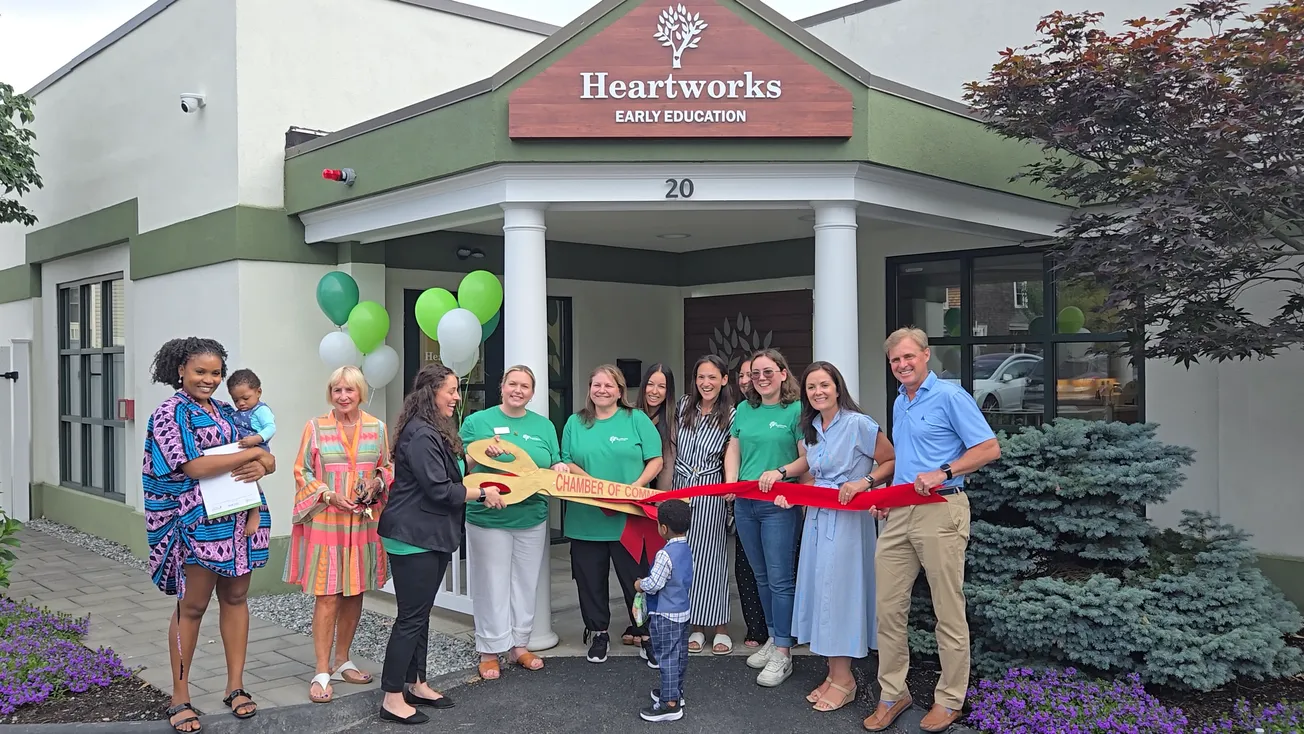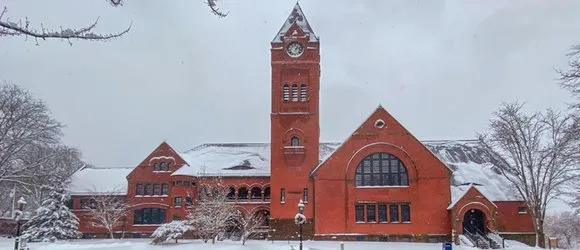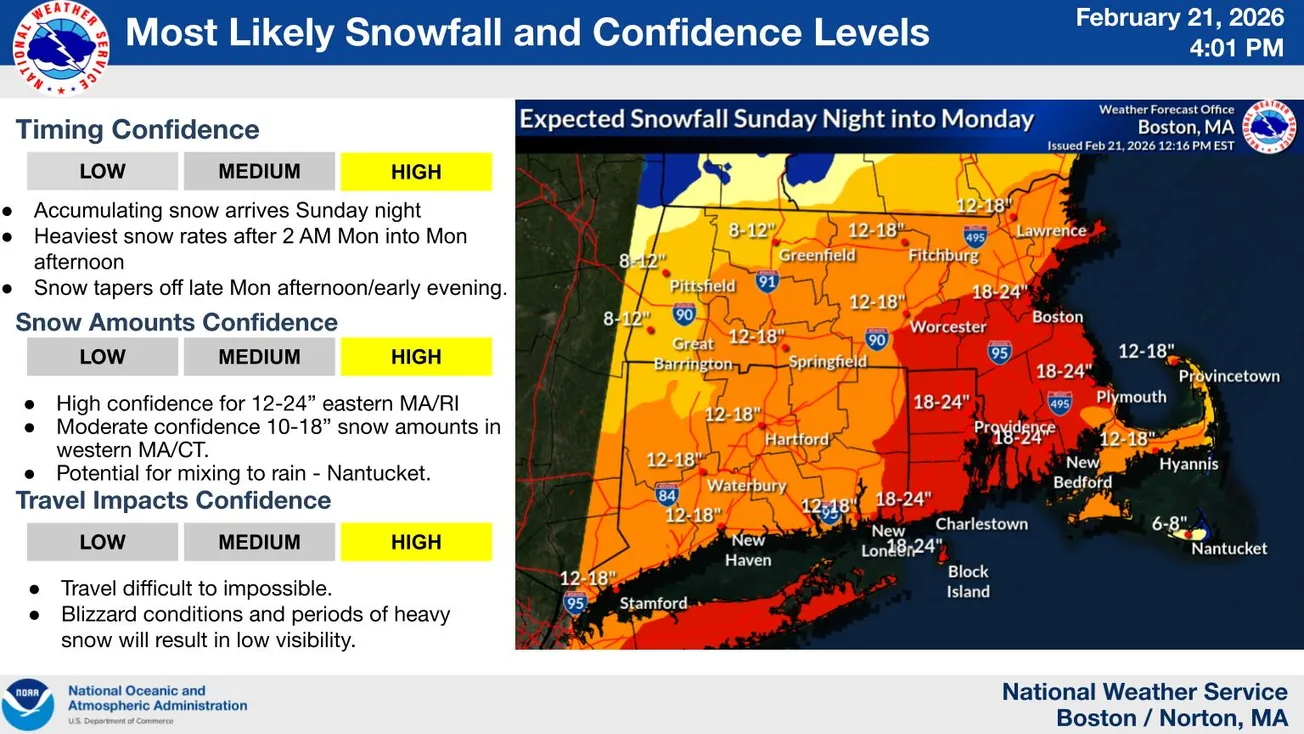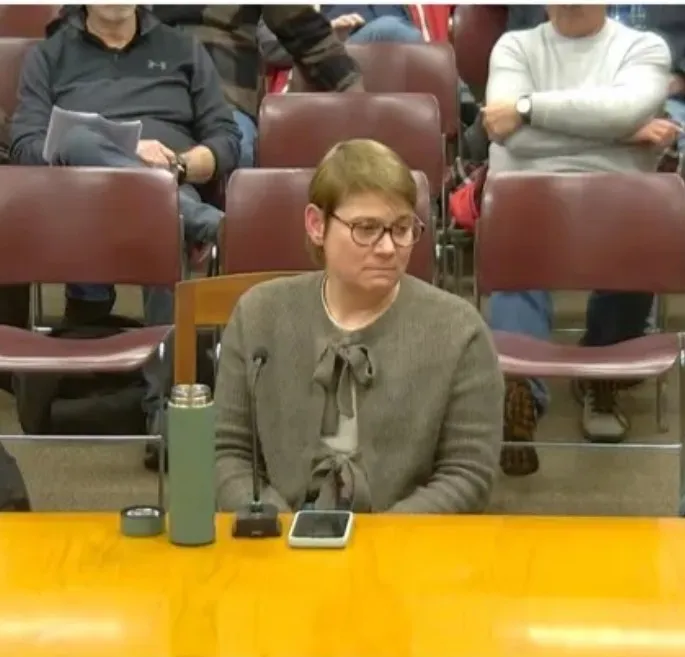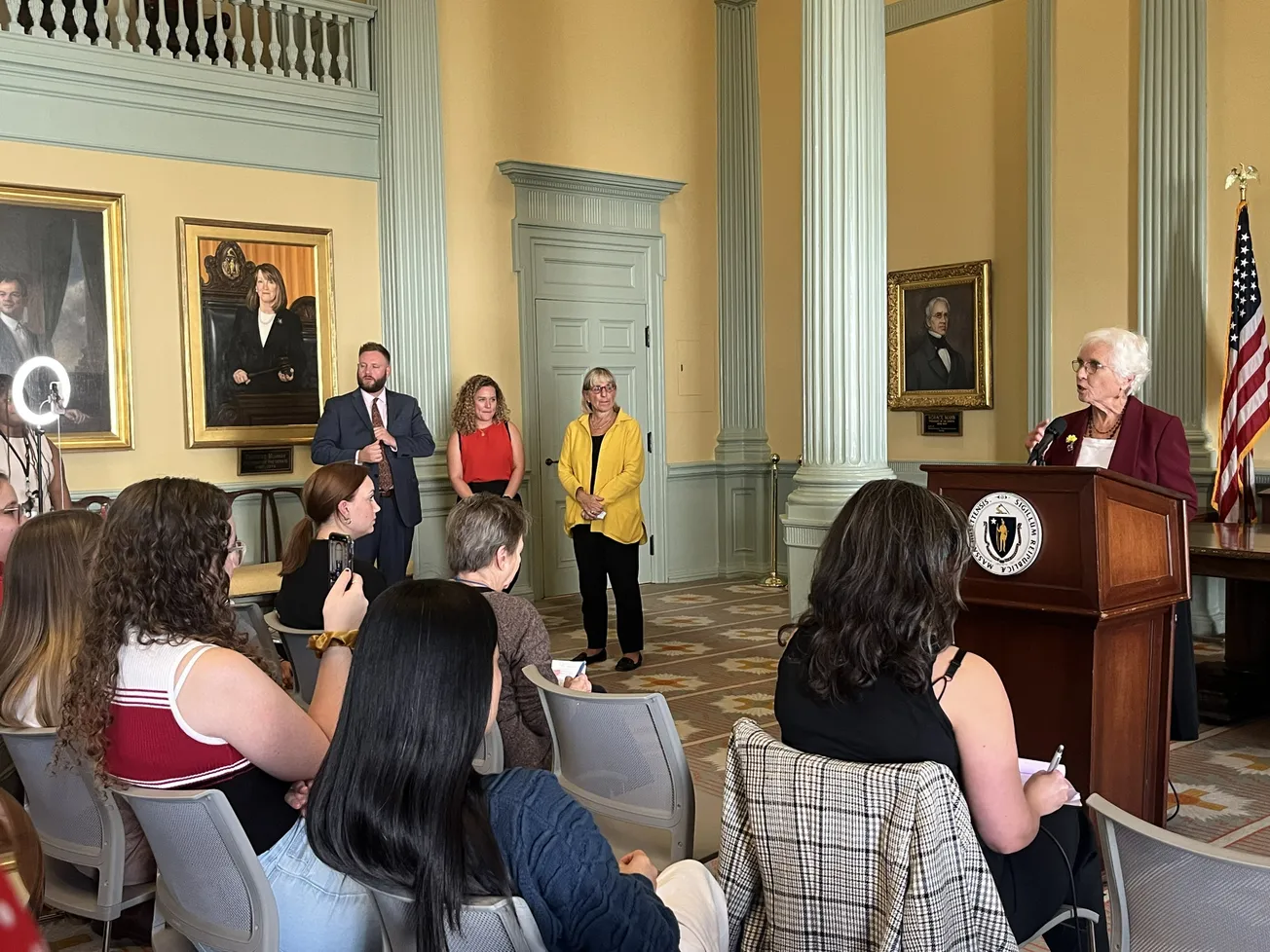Table of Contents
Cheers erupted as Heartworks snipped the bright red ribbon, marking the official opening of Winchester’s newest center of innovative early childhood education. The air buzzed with excitement as families, educators, and community members crowded into the building, decorated with student art and bright colors.
The ceremony, held July 9, drew over triple digit attendees. Organizers guided families around the school, located at 20 White St., showing off the different classrooms and environments, as kids socialized and enjoyed the various play structures outside.
“We are very excited to be in the Winchester community!” said Alexandra Loos, head of education at Heartworks, Little Sprouts and Building Blocks. “It is really a celebration of what is possible when our communities come together and we are proud to offer a place where all families and children are welcome and every child has access to joyful and high quality early learning.”
The Heartworks model, based in Vermont, is a nature-based curriculum where they try to infuse that experience into a child’s day. Winchester is the first Massachusetts location.
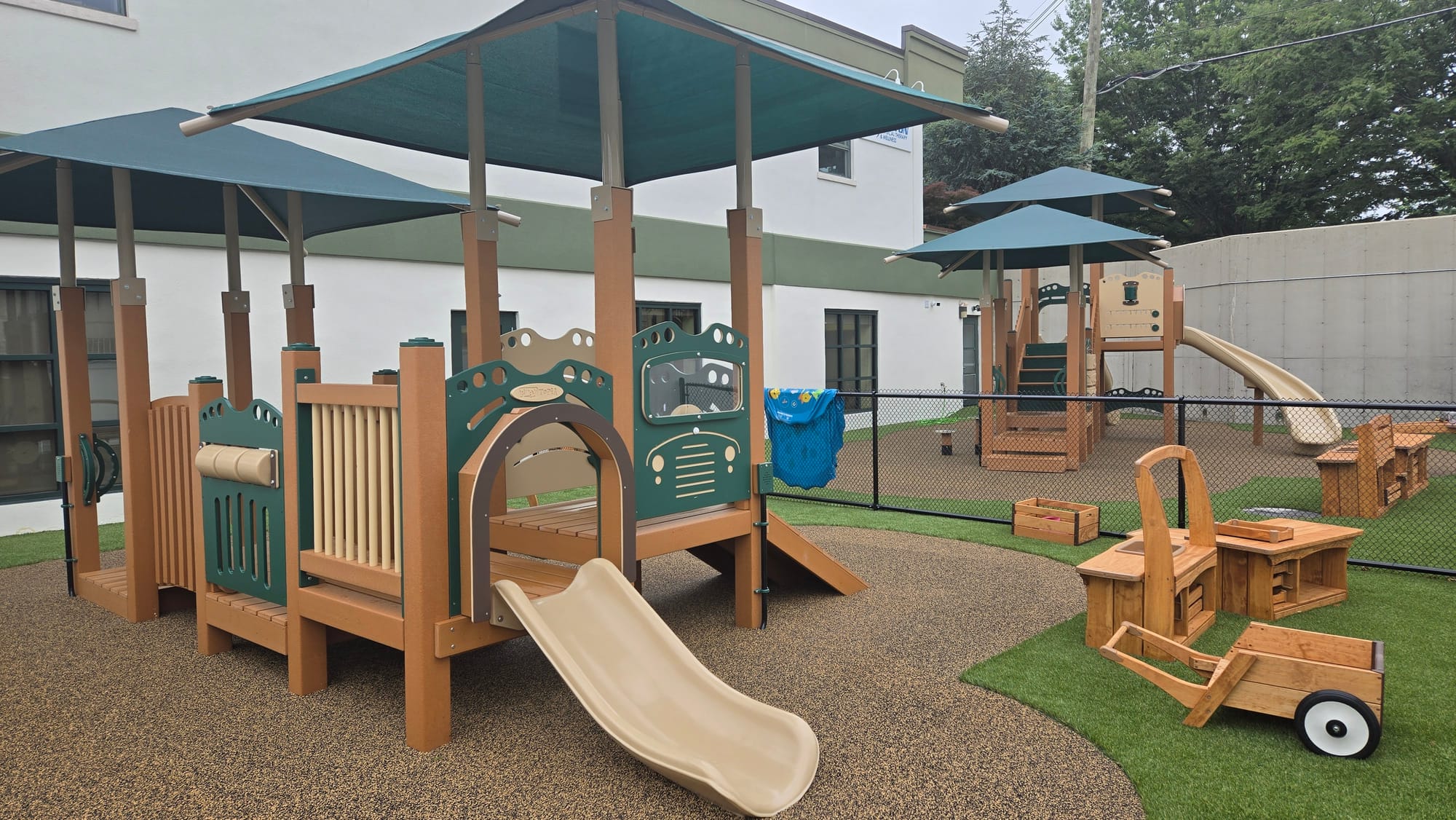
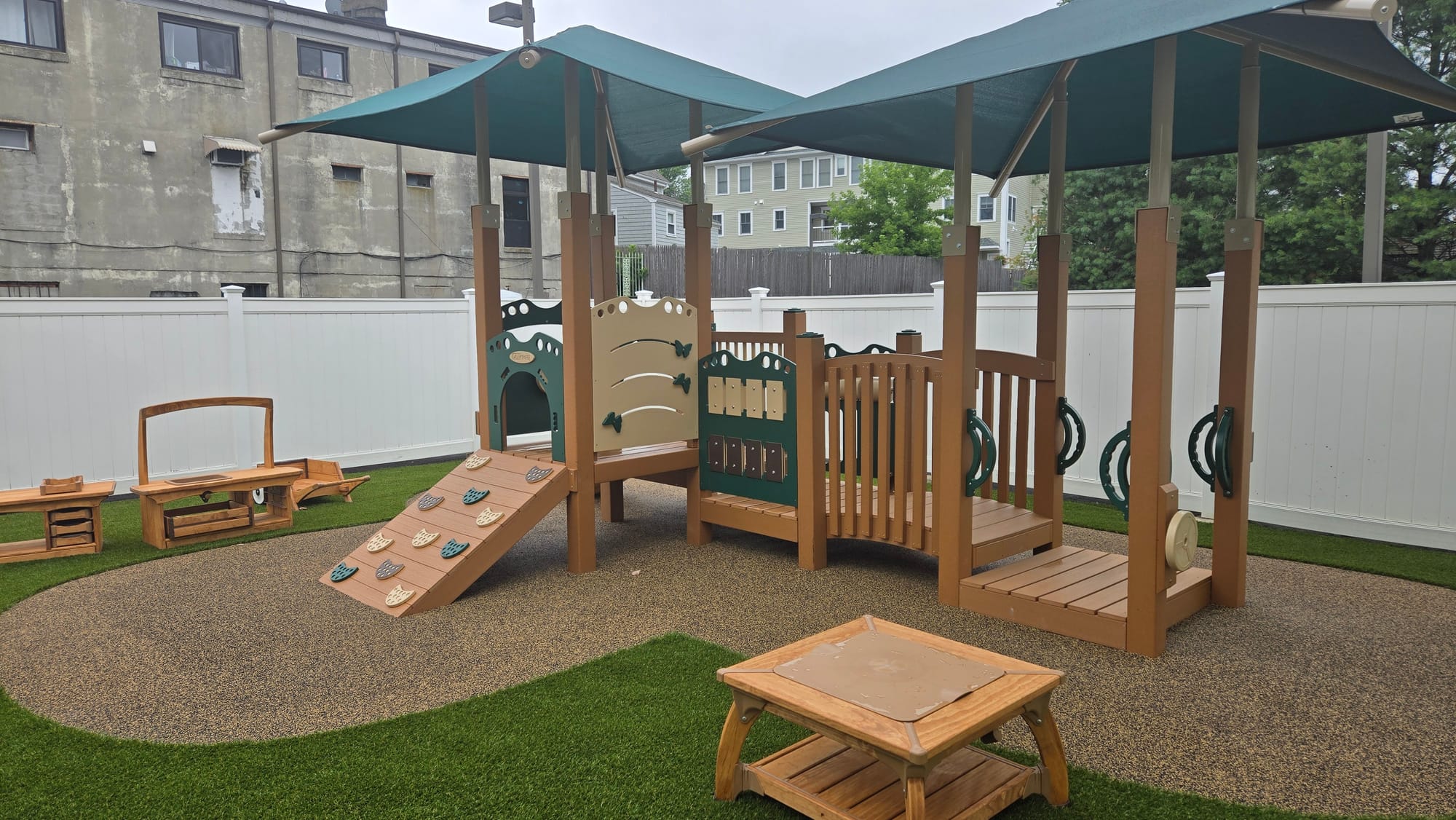
A look at the play structures for the children at Heartworks. COURTESY PHOTOS/HEARTWORKS WINCHESTER
“[We] are really getting away from the typical play you might think of, like plastic toys,” said Christie Pinheiro, chief operating officer of Little Sprouts, Heartworks and Building Blocks “We really want to make sure that they are having the opportunity to use their imagination, be creative, and do that with nature.”
Loos said Heartworks realized Winchester was missing an early education program.
“We saw a need in this neighborhood as there was not a lot of care that began as early as infancy,” explained Loos. “We wanted to fill that gap to help support families in the Winchester and neighboring communities to have a safe, secure, enriching place for their children to learn very early skills.”
Early childhood programs
The first five years, Loos continued, are the most essential for a child’s future learning. Early education programs build the foundation for all future learning, and social emotional skills.
Heartworks at Winchester offers three different programs: infants, toddlers, and pre-K.
“We built this space with the intention for our infant, toddler, and pre-K families to have a place for children where they can explore and learn through play and engage with age appropriate experiences,” explained Loos.
Loos clarified Heartworks has a different approach to each of the three groups.
“We really follow the infants lead and we work very closely with the families to ensure that we are taking their expertise on their child and weaving that into the time that they are with us,” Loos said, of the program. “We believe in free mobility so children will have the opportunity to explore the space through their senses and have ample time to move around and get outside.”
Toddlers, she added, are starting to explore the world in new ways.
“Toddlers have a daily rhythm that includes morning gathering time, daily outside time, lots of sensory experiences because we also know that toddlers are learning a lot about the world through their senses,” she said.
Social emotional skills are the biggest thing the pre-K program helps prepare children for.
“We’re getting them ready to go off to Kindergarten and so we prepare them with social emotional skills that they need to manage the big world around them and understand their feelings and the feelings of others,” she said.
Throughout all three programs, one thing ties it all together: the environment acts like a third teacher at Heartworks. Loos stressed children are able and encouraged to explore their spaces, engage in experiences that are meaningful to them and all while learning really important components of who they are, and who they will be as a learner.
“Our pillars of our educational philosophy are that our learning is based on play,” Loos said. “We are child-centered in that we believe in listening to the children, guiding them, and allowing them to explore the world through meaningful experiences.”
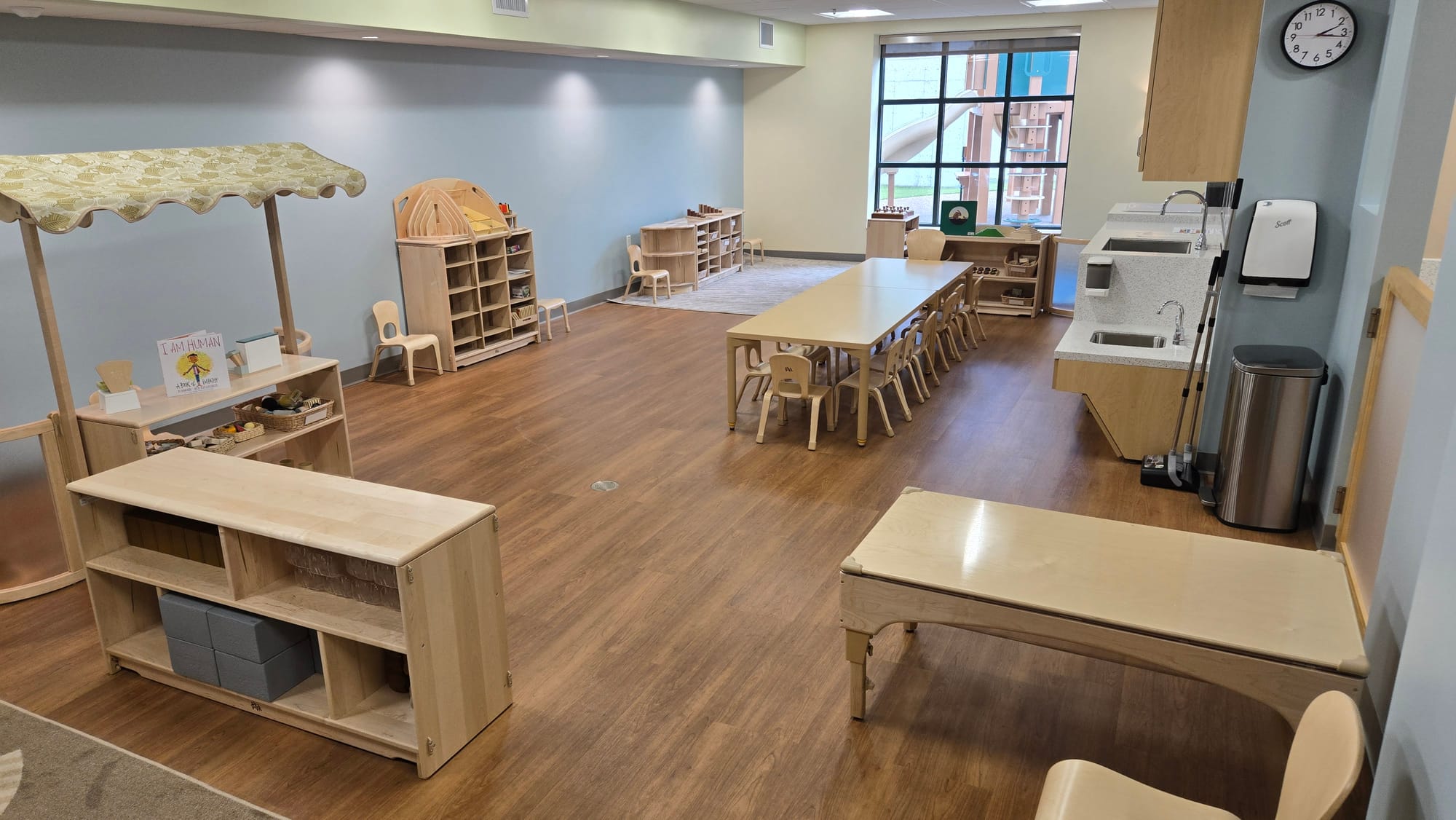
Teachers are set up in a way to orchestrate what is happening in the classroom but keep the environment welcoming and engaging for the children, Pinheiro added.
“We’re setting up scenarios that are going to make them be challenged and we are asking a lot of open-ended questions,” she said.
Pinheiro brought up this example: a child is in the play area, making ice cream.
“We’re asking them what flavor are you creating right now or what kind of ice cream do you want?” she explained. “And we like engaging with them and asking questions to help their creativity. We also believe that children should, like their education comes through play.”
Pinheiro emphasized the importance of every single day in a child’s life.
“We have one day to make an impact on the child’s life, right? So every day matters. And I say that a lot to teachers, to leaders of our schools, that every day matters in the life of a child. We only have a percentage for a short amount of time. So make it count, right?” she said. “And really help those children thrive in our environments, setting up our classrooms that are engaging and inviting and they’re safe and they're warm, and children can truly be themselves.”
Loos had a similar view.
“What a gift, right?” she said. “Every day, our educators go to work, we go to work knowing that we are having an impact on children's lives for the long term, building brains every single day. That is such a gift.”

